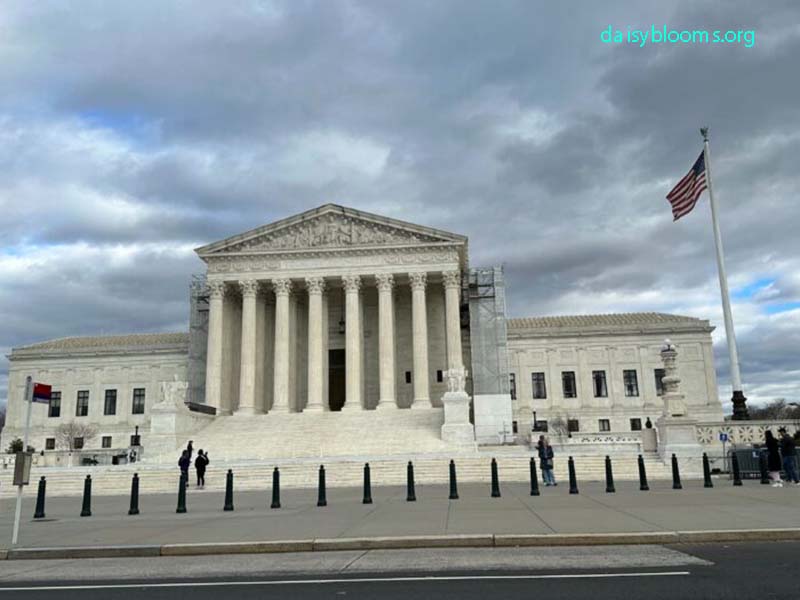The U.S. Supreme Court recently declined to hear an appeal from Devon Archer, a former business partner of Hunter Biden, who sought to overturn his criminal conviction. This case, which has garnered significant attention due to its connections to political figures and high-profile companies, revolves around Archer’s involvement in a fraudulent scheme that misled a Native American tribe. This decision marks a critical moment in the legal battle Archer has fought since his initial conviction in 2018. Despite previous efforts to clear his name, the Supreme Court’s decision leaves his conviction intact, ensuring Archer will face the consequences of his actions.
Background of Devon Archer and His Business Ventures
Devon Archer was once a successful businessman and a member of the board of Burisma, a Ukrainian energy company, where he served alongside Hunter Biden. Their business partnership drew significant media attention, primarily due to Hunter Biden’s role as the son of current U.S. President Joe Biden. However, Archer’s legal troubles began when he was implicated in a fraudulent scheme involving the Oglala Sioux Tribe.
The scheme revolved around the issuance of $60 million in bonds by the tribe. Archer, along with his associates, was accused of deceiving the tribe and investors by promoting these bonds under false pretenses. The bonds were marketed as a legitimate financial investment, but Archer and his co-conspirators used fraudulent means to enrich themselves at the tribe’s expense. This fraudulent scheme led to millions of dollars in losses for investors and damaged the financial interests of the Native American community involved.
Initial Conviction and Legal Battle
In 2018, Archer was convicted by a jury for his role in the bond fraud scheme. He was sentenced to serve time in prison for defrauding the Oglala Sioux Tribe and other investors. However, in a surprising turn of events, U.S. District Judge Ronnie Abrams vacated the conviction later that year, citing concerns over Archer’s involvement and stating that she had doubts about whether he was truly aware of the fraudulent nature of the bond issuance. This decision briefly gave Archer hope for a legal reprieve.
Despite the judge’s concerns, Archer’s conviction was reinstated by the Second Circuit Court of Appeals in 2020. The appeals court determined that the evidence against Archer was substantial enough to uphold his conviction, and as a result, his prison sentence was re-imposed. Archer’s lawyer continued to argue that his client was innocent, claiming that Archer did not benefit from the fraudulent activity and was unaware of the fraudulent nature of the bond deals. Nevertheless, the reinstatement of the conviction marked a significant legal defeat for Archer.
Supreme Court’s Decision to Reject the Appeal
Following the reinstatement of his conviction, Devon Archer sought to appeal his case to the U.S. Supreme Court, hoping to overturn the decision of the Second Circuit Court of Appeals. In January 2024, the Supreme Court officially rejected Archer’s appeal without comment, effectively ending his legal avenues to challenge the conviction.
This rejection solidified the court’s position that Archer’s conviction would stand, and he would be required to serve his sentence. The Supreme Court’s decision was not entirely unexpected, as the court often declines to hear cases without providing a detailed explanation. By refusing to take up the appeal, the justices left in place the lower court rulings that found Archer guilty of defrauding the tribe and other investors.
Impact of the Supreme Court’s Decision
The Supreme Court’s refusal to hear Archer’s appeal carries significant consequences for both Archer and the broader legal landscape. Archer will now have to serve his one-year and one-day prison sentence, as imposed by the lower courts. This marks the end of a prolonged legal battle that has spanned several years and involved multiple appeals and legal challenges.
For Archer, the Supreme Court’s decision represents the final blow in his attempts to clear his name. His defense team had previously argued that Archer had no knowledge of the fraudulent nature of the bond scheme and had not personally benefited from the illegal activities. However, the courts ultimately determined that the evidence against him was too strong to ignore, and his conviction was reinstated.
Connection to Hunter Biden
Although Devon Archer’s case is separate from Hunter Biden’s legal matters, the association between the two has drawn considerable media attention. Archer and Biden served on the board of Burisma together, which has been a focal point for discussions about Hunter Biden’s business dealings in Ukraine. Despite the connection between Archer and Biden, it is important to note that Hunter Biden was not involved in the bond fraud scheme that led to Archer’s conviction.
While Hunter Biden has faced his own legal scrutiny in recent years, particularly regarding his business dealings and tax matters, his relationship with Archer has not directly impacted his legal troubles. The courts have made it clear that Hunter Biden had no role in the fraudulent bond scheme, and Archer’s conviction is solely related to his actions in defrauding the Native American tribe and other investors.
Repercussions for Native American Tribes
The fraudulent bond scheme orchestrated by Devon Archer and his associates had a lasting impact on the Oglala Sioux Tribe. Native American tribes have historically faced economic challenges, and schemes like this one further exacerbate financial difficulties for these communities. The bond fraud not only led to significant financial losses for the tribe but also damaged the tribe’s ability to secure future investments and financial opportunities.
The case has underscored the vulnerability of Native American tribes to fraudulent schemes and the importance of legal protections to prevent exploitation. The U.S. government has made efforts to increase financial literacy and legal safeguards for Native American tribes, but cases like this highlight the ongoing challenges these communities face in navigating the complex world of finance and investment.
Conclusion
The Supreme Court’s rejection of Devon Archer’s appeal marks the end of a long and contentious legal battle. Archer, once a prominent businessman with ties to high-profile figures like Hunter Biden, will now serve his prison sentence for his role in defrauding the Oglala Sioux Tribe and other investors. The case serves as a reminder of the importance of transparency and accountability in financial dealings, especially when vulnerable communities, such as Native American tribes, are involved.
While Hunter Biden’s name has been linked to the case due to his association with Archer, it is clear that he was not involved in the fraudulent scheme. Nevertheless, the media attention surrounding the case has kept the spotlight on Hunter Biden’s business dealings, adding to the scrutiny he faces.
As Archer prepares to serve his sentence, the repercussions of the bond fraud continue to be felt, particularly by the victims of the scheme, including the Native American tribe that was defrauded. The legal system’s decision to uphold Archer’s conviction reflects the seriousness of financial crimes and the need for justice in cases of fraud and deception.


